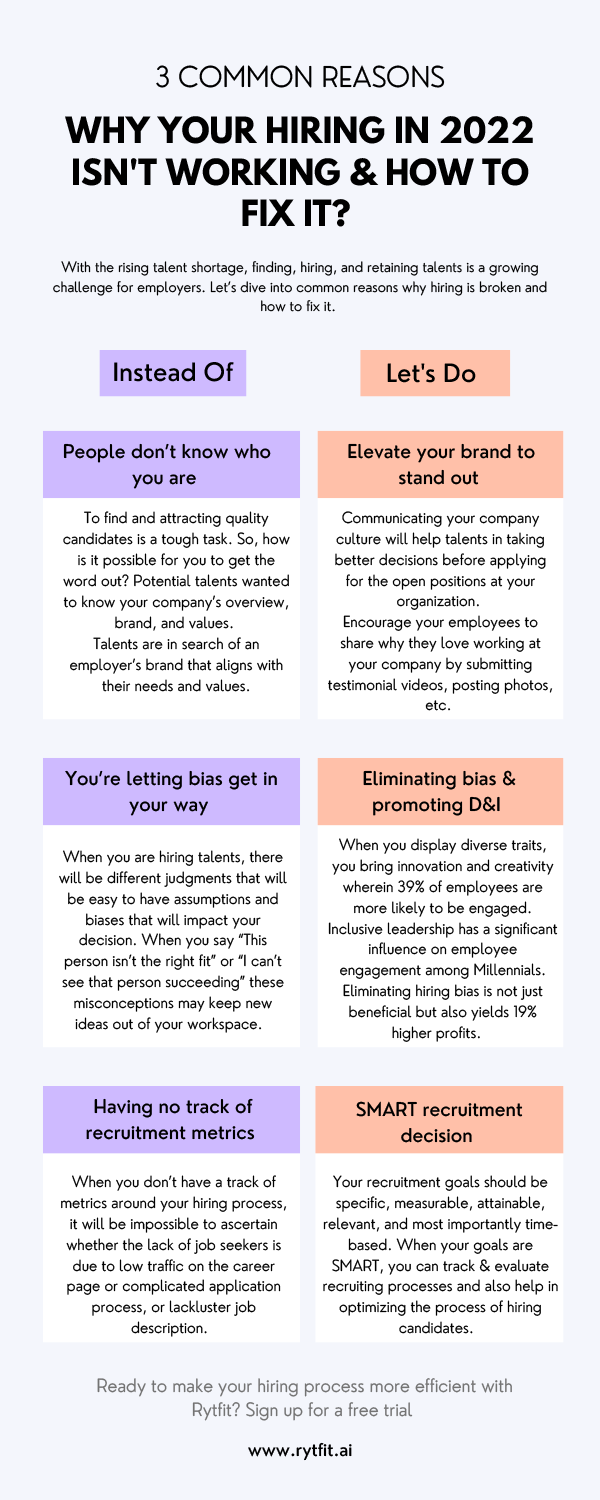Hiring is a long and tedious process, with lots of decisions to be made. The process is constantly changing as the economy changes.
Companies are hiring faster now more than ever to meet demand. And they’re willing to pay more for the right person. More companies are outsourcing their hiring needs as well, instead of retaining full-time HR staff.
With a tight labor market, it is extremely hard to retain top performers. This is a common problem in many organizations. So here are the 3 major reasons in which your hiring isn’t working in 2022 and tips to fix it.
What to do when a new hire is not working out?
When a new hire doesn’t perform to expectations, it’s crucial to address the situation promptly and constructively. Here’s a step-by-step guide:
1. Assess the Situation:
- Gather information: Talk to the new hire, their colleagues, and their manager to understand the specific issues and determine if it’s performance-related, cultural fit, or something else.
- Consider probationary period: Are they still within the probationary period? This affords more flexibility in making adjustments or ending employment.
2. Open Communication:
- Schedule a private meeting: Discuss your concerns clearly and objectively, providing specific examples of areas where they’re falling short.
- Focus on specific behaviors and outcomes: Avoid personal attacks and stick to observable actions and their impact on the team or company.
- Actively listen to their perspective: Understand their challenges and potential solutions.
3. Develop a Plan for Improvement:
- Set clear and measurable goals: Define specific performance expectations and timelines for improvement.
- Offer additional support: Consider training, mentorship, or other resources to help them succeed.
- Document all discussions and agreements: Keep a record of the situation and the plan moving forward.
4. Monitor Progress and Provide Feedback:
- Regularly meet to discuss their progress: Provide ongoing feedback and encouragement.
- Adjust the plan if needed: If they’re making a genuine effort but significant improvement isn’t seen, you may need to revise the plan or timelines.
5. Make a Difficult Decision:
- If all efforts fail: If significant improvement doesn’t happen within the agreed timeframe, you may need to consider ending their employment.
- Follow company policies and procedures: Ensure a fair and respectful termination process based on the documented performance issues.


